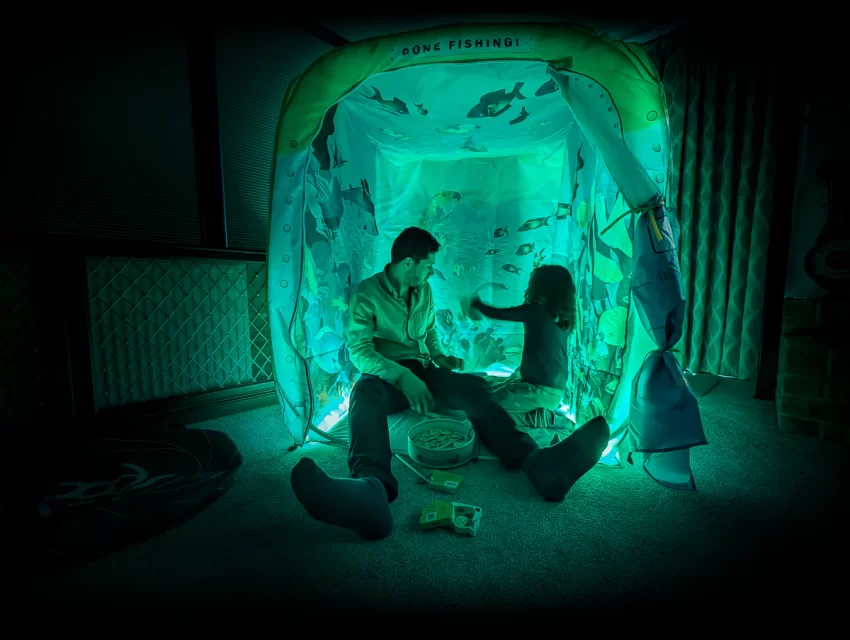In the fast-paced digital age, where children are often engrossed in screens and electronic devices, there’s an undying need to provide them with opportunities that stimulate their imagination, creativity, and physical activity. Enter the enchanting world of indoor play tents for kids, a simple yet powerful way to offer young minds a space to explore, play, and create magical memories. These cosy hideaways not only encourage imaginative play but also contribute to the holistic development of children. In this blog, we delve into the captivating realm of indoor play tent, exploring why they are more than just temporary structures – they’re gateways to endless adventures.
Unleashing Imagination: The Power of Pretend Play
Indoor play tents act as portals to worlds limited only by the bounds of a child’s imagination. These mini sanctuaries transform into castles, spaceships, jungles, or secret lairs, giving children the canvas to paint their stories. Kids develop essential cognitive skills through role-playing and pretend play, including problem-solving, communication, and critical thinking. As they assign roles, create scenarios, and immerse themselves in make-believe, they enhance their understanding of the world and its complexities.
Children often find comfort in repetition, so indoor play tents become their haven for consistent imaginative play. As they revisit their tent scenes, they build upon their narratives, refining plots and characters. This repetition fosters memory retention and pattern recognition, boosting cognitive development in subtle yet impactful ways.
Active Bodies, Active Minds: Physical and Motor Skill Development
Indoor play tents aren’t just for the mind – they also provide ample opportunities for physical activity. Crawling through the tent’s entrance, manoeuvring within its confined space, and reaching for toys or objects encourage the development of fine and gross motor skills. These physical movements aid in refining hand-eye coordination, spatial awareness, and balance.
With concerns about sedentary lifestyles and childhood obesity on the rise, indoor play tents offer a solution by enticing children to engage in active play within the safety of their homes. The tent’s interior becomes an adventure zone where kids can stretch their muscles, practice yoga poses, or dance to their tunes. This fusion of physical and imaginative play nurtures a healthy lifestyle from a young age.
Personal Space and Emotional Growth
Children crave a sense of ownership and control over their environment. Indoor play tents provide them with a designated personal space where they can retreat whenever they need a moment of solitude or self-reflection. This fosters a sense of independence, autonomy, and emotional security.
As children decorate their play tents with blankets, pillows, and their favourite toys, they learn the art of personalization and organization. These skills translate into tidying up their play area, instilling responsibility early on. Moreover, these tents can serve as a quiet refuge for children when they feel overwhelmed, aiding in emotional regulation and self-soothing.
Bonding and Social Skills: The Tent as a Collaborative Space
Indoor play tents are not confined to solitary play but also catalysts for social interactions. When siblings, friends, or family members join, the tent becomes a space for collaborative storytelling, negotiating roles, and sharing creative ideas. This fosters essential social skills such as cooperation, empathy, and effective communication.
As parents or caregivers join in the tent-based adventures, a unique opportunity for bonding arises. Engaging in imaginative play with children strengthens familial relationships, creating cherished memories that children and adults will carry into the future.
Conclusion
In a world where technology is ubiquitous in children’s lives, the simplicity of indoor play tents offers fresh air. These enchanting hideaways kindle the flames of creativity, propel physical activity, nurture emotional growth, and facilitate social development. By providing children with the tools to craft their adventures, indoor play tents become vessels of transformation, turning any corner of the house into a realm of limitless possibilities. So, the next time you see a child stepping into their play tent, remember that they’re not just entering a piece of sensory toy – they’re stepping into a world of wonder and learning that will profoundly shape their growth.


